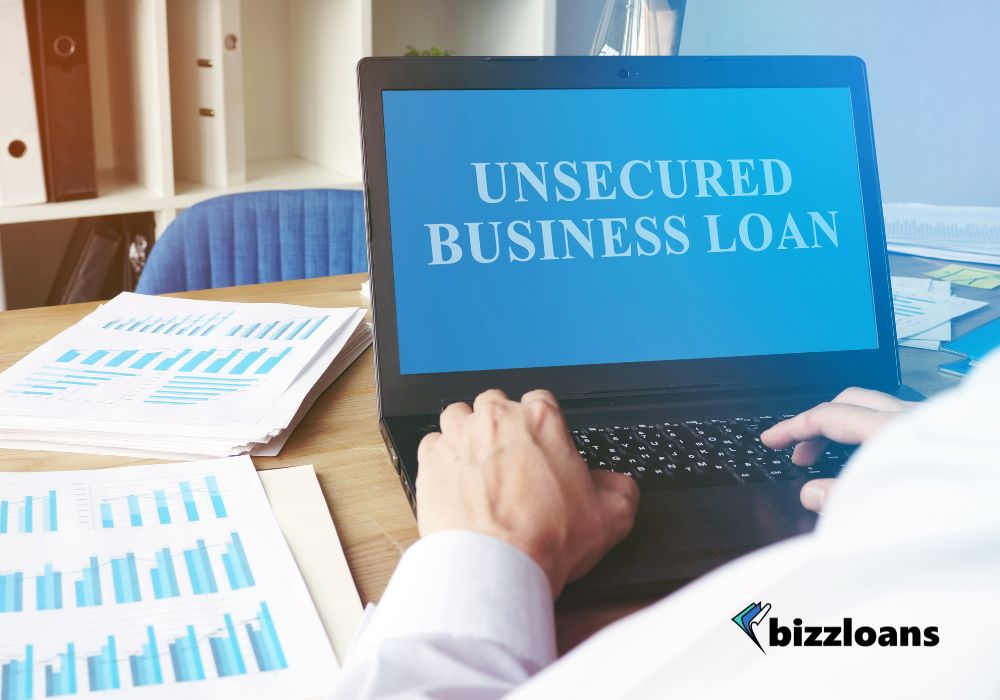Business loans play a crucial role in providing financial support to businesses for various purposes such as startup costs, expansion, working capital, or purchasing equipment. When considering business loans, understanding the difference between secured and unsecured loans is essential.
Secured business loans are backed by collateral, such as property or assets, which the lender can seize in case of default. On the other hand, unsecured business loans do not require collateral and are based on the creditworthiness of the borrower.
However, the question arises, are business loans really unsecured?
While unsecured business loans do not require collateral, they are not entirely without risk. There are factors that influence the secured or unsecured nature of business loans, such as the borrower’s credit score, business financials, and the lender’s assessment of risk. Exploring the risks associated with unsecured business loans is crucial to understand their true nature.
Despite the potential risks, there are advantages to opting for unsecured business loans. They offer faster approval times, less paperwork, and more flexibility in terms of usage. However, it is important to note the disadvantages as well, including higher interest rates, lower borrowing limits, and stricter eligibility criteria.
Business owners looking for alternatives to unsecured business loans can explore options such as secured loans, business lines of credit, or seeking financing from investors or crowdfunding platforms.
By gaining a comprehensive understanding of business loan options and their secured or unsecured nature, entrepreneurs can make informed decisions about financing their business ventures while mitigating potential risks.
What are Business Loans?
Looking to understand the world of business loans? This section dives straight into the heart of it all. Get ready to explore the ins and outs of what business loans really are, and stay tuned as we delve into the various types that are available. So, buckle up and get ready to uncover the mystery behind business loans and how they can shape your entrepreneurial journey. To learn more, check out Unmasking Business Loans: Are They Really Unsecured?.
Types of Business Loans
The different types of business loans include:
- Term Loans: These are traditional loans where a specific amount is borrowed and repaid over a set period of time with interest. They are typically used for long-term investments such as purchasing equipment or expanding business operations.
- Line of Credit: This is a revolving credit facility that allows businesses to borrow funds as needed up to a pre-approved credit limit. It offers flexibility and can be used for short-term cash flow needs.
- SBA Loans: These are loans guaranteed by the Small Business Administration, aimed at assisting small businesses. They have longer repayment terms and lower interest rates compared to traditional loans.
- Invoice Financing: Also known as accounts receivable financing, this type of loan allows businesses to borrow against unpaid customer invoices. It provides immediate cash flow while waiting for invoices to be paid.
- Equipment Financing: This type of loan is specifically used to purchase or lease equipment for the business. The equipment being financed serves as collateral for the loan.
When choosing the right type of business loan, consider factors such as interest rates, repayment terms, eligibility criteria, and the specific funding needs of your business. It is important to carefully evaluate the options available and choose the loan that best suits your business goals and financial situation.
Understanding Secured and Unsecured Loans
Understanding secured and unsecured loans is essential when considering borrowing options.
- Secured loans: In order to comprehend the concept of secured loans, it is important to know that these loans are backed by collateral, such as property or a vehicle. The lender has the right to claim this collateral if the borrower fails to repay the loan. Secured loans often offer lower interest rates and are easier to qualify for.
- Unsecured loans: On the other hand, unsecured loans do not require collateral and are solely dependent on the borrower’s creditworthiness. These loans typically come with higher interest rates and stricter eligibility requirements.
- When faced with the decision between secured and unsecured loans, it is crucial to take into account your financial situation and the specific amount you need to borrow. Secured loans are more suitable for larger amounts and longer terms, while unsecured loans are a better option for smaller amounts and shorter terms.
Fact: As stated by recent data, secured loans come with an average interest rate of around 4.5% to 7%, while unsecured loans have an average interest rate of approximately 10% to 12%. This clearly demonstrates the significant impact of collateral on loan costs.
What are Secured Business Loans?
Secured business loans are a type of loan that requires collateral for approval. Collateral can take the form of assets such as property, inventory, or equipment. The purpose of requiring collateral is to provide lenders with a sense of security, as they have the option to seize the collateral in the event of default.
There are several advantages to secured business loans. Firstly, they are more accessible to borrowers with lower credit scores because the collateral provides reassurance to lenders. Secondly, secured loans generally have lower interest rates compared to unsecured loans because the lender’s risk is reduced. Additionally, secured loans often come with longer repayment terms, which can be beneficial for managing cash flow.
However, there are risks associated with secured business loans. If a borrower fails to repay the loan, the lender has the right to seize and sell the collateral in order to recover their losses. This can result in the loss of valuable assets for the borrower. Furthermore, the process of obtaining a secured business loan can be more time-consuming because the lender needs to assess the value and quality of the collateral.
Overall, secured business loans provide benefits such as increased accessibility and lower interest rates, but borrowers need to be aware of the potential risks involved.
What are Unsecured Business Loans?
Unsecured business loans are loans that do not require collateral or assets to secure the loan. They are based on the creditworthiness and financial strength of the borrower. These loans are typically granted based on the borrower’s credit history and business revenues.
Unsecured business loans provide flexibility and convenience for business owners. They offer quick access to funds without the need for collateral, which can be especially beneficial for small businesses or startups that may not have significant assets to pledge. Additionally, unsecured loans are typically easier to qualify for compared to secured loans.
However, it is important to note that unsecured business loans generally have higher interest rates compared to secured loans. The increased risk for the lender is reflected in the interest rate charged. It is essential for borrowers to carefully evaluate the cost of borrowing and consider whether the benefits outweigh the higher cost.
Another factor to consider is that unsecured loans may have stricter repayment terms and shorter loan durations. Lenders may require regular repayment installments and may impose penalties for late payments or prepayment.
Are Business Loans Really Unsecured?
Are business loans as unsecured as they seem? Let’s dive into the risks of unsecured business loans and uncover the factors that determine whether a business loan is secured or unsecured. Discover how these elements play a vital role in shaping the nature of business loans, shedding light on the different levels of security involved.
Exploring the Risks of Unsecured Business Loans
- Higher interest rates: Unsecured business loans present a higher interest rate compared to secured loans. This is due to the increased risk lenders face when there is no collateral securing the loan.
- Shorter repayment terms: Lenders may require shorter repayment terms for unsecured loans, leading to higher monthly payments and added financial strain for businesses.
- Stricter eligibility criteria: Since there is no collateral involved, lenders may impose stricter eligibility criteria for unsecured business loans. They may demand a higher credit score or financial stability to mitigate the risk.
- Limited borrowing capacity: Without collateral, the borrowing capacity for unsecured business loans may be lower than that of secured loans. This limitation can restrict the financing options available to businesses.
- Potential personal liability: In certain cases, lenders might ask for personal guarantees from business owners when granting unsecured loans. This means that if the business fails to repay the loan, the personal assets of the business owners can be seized.
Unsecured business loans have been a popular financing option for small businesses over the years. While they offer advantages such as quick access to funds and flexibility in how the capital is used, it is crucial for businesses to carefully evaluate the risks associated with such loans. By assessing their financial capabilities, exploring alternative financing options, and considering the implications of unsecured borrowing, businesses can make informed decisions and mitigate potential risks.
Factors that Influence the Secured/Unsecured Nature of Business Loans
The secured/unsecured nature of business loans is determined by several key factors:
- Creditworthiness: The borrower’s creditworthiness is a crucial factor in determining whether a business loan will be secured or unsecured. Lenders may require collateral if the borrower has a low credit score or a history of financial instability.
- Loan Amount: The size of the loan can also affect whether it is secured or unsecured. Generally, larger loan amounts are more likely to require collateral in order to minimize the lender’s risk.
- Business Performance: The stability and performance of the business are taken into consideration when determining the loan type. A well-established business with consistent revenue and profitability is more likely to be eligible for an unsecured loan.
- Industry Risk: The industry in which the business operates can influence whether the loan is secured or unsecured. Industries with higher levels of risk, such as startups or those affected by economic fluctuations, may require collateral to secure the loan.
- Terms and Conditions: Lenders may offer different terms and conditions based on whether the loan is secured or unsecured. Secured loans typically have lower interest rates and longer repayment periods, while unsecured loans may have higher interest rates and shorter repayment terms.
Advantages of Unsecured Business Loans
The advantages of unsecured business loans, such as the Advantages of Unsecured Business Loans, include:
- Flexibility: Unsecured business loans offer flexibility in terms of how the funds can be utilized. Business owners can use the loan for various purposes such as expanding operations, purchasing equipment, or hiring additional staff.
- No collateral required: Unlike secured loans, unsecured business loans do not require collateral. This means that business owners do not have to put their assets at risk to secure the loan.
- Quick approval process: Unsecured business loans typically have a quicker approval process compared to secured loans. This allows business owners to access the funds they need in a shorter amount of time, helping them to seize time-sensitive opportunities.
- No restrictions on usage: With unsecured business loans, there are typically no restrictions on how the funds can be used. Business owners have the freedom to invest the funds in whatever way they see fit to benefit their business.
- Lower risk: Since unsecured business loans do not require collateral, business owners are not at risk of losing their assets if they are unable to repay the loan. This lower risk can provide peace of mind and allow business owners to focus on growing their business.
Disadvantages of Unsecured Business Loans
The disadvantages of unsecured business loans, such as higher interest rates, limited borrowing amounts, and stricter eligibility criteria, present challenges for potential borrowers.
- Higher interest rates: Unsecured business loans typically come with higher interest rates compared to secured loans. Lenders, facing increased risk without collateral, charge higher interest rates to protect their investment.
- Limited borrowing amounts: Since unsecured loans lack collateral, lenders may cap the amount they are willing to lend. This can be problematic for businesses in need of substantial funding.
- Stricter eligibility criteria: In order to mitigate the risks associated with unsecured business loans, lenders often have stricter requirements. These may include a longer business history, higher credit scores, and more detailed financial documentation.
One real-life example illustrating the disadvantages of unsecured business loans is the case of a small online retail business. The owner, looking to expand their inventory and marketing efforts, applied for an unsecured business loan. Unfortunately, due to the business’s limited history and lack of collateral, securing the loan proved impossible. This setback hindered their growth plans, forcing them to explore alternative, more time-consuming funding options.
Alternatives to Unsecured Business Loans
When exploring alternatives to unsecured business loans, there are several options available:
- Secured loans: These loans require collateral, such as property or equipment, to secure the loan. They often have lower interest rates and longer repayment terms.
- Invoice financing: This option allows businesses to receive funds based on their outstanding invoices. The lender advances a percentage of the invoice amount and collects the full payment from the customer.
- Business line of credit: Similar to a credit card, a line of credit provides businesses with access to a predetermined amount of funds that can be used as needed. Interest is only charged on the amount used.
- Peer-to-peer lending: This form of lending connects businesses directly with individual investors. It often offers competitive interest rates and flexible terms.
- Crowdfunding: This option involves raising funds from a large number of individuals who contribute small amounts. It is commonly used for startups or projects with wide public appeal.
A compelling example of alternatives to unsecured business loans is illustrated by a true story of a small business owner who was unable to secure a traditional loan due to a lack of collateral. Instead, they opted for crowdfunding and successfully raised the necessary funds to launch their business. This alternative funding method allowed the business owner to achieve their goals without the typical requirements of a secured loan.
Some Facts About “Unmasking Business Loans: Are They Really Unsecured?”:
- ✅ Unsecured business loans do not require collateral, which is beneficial for businesses that do not have valuable assets to use as security. (Source: Bankrate)
- ✅ Unsecured loans may offer fast funding, with approvals and funding often taking only one to three days. (Source: NerdWallet)
- ✅ Unsecured business loans are generally more expensive than secured loans, as lenders rely more on creditworthiness and business credentials. Higher interest rates and fees are used to compensate for the higher risk. (Source: Bankrate)
- ✅ Eligibility requirements for unsecured loans can be strict, especially for loans with the best rates, high loan amounts, lower fees, and longer repayment periods. These loans are typically reserved for established businesses with good credit and high annual revenue. (Source: NerdWallet)
- ✅ Unsecured loans do not require borrowers to provide collateral and are backed only by their creditworthiness. However, there are risks involved, such as difficulty in qualifying for a loan, higher interest rates, shorter terms, and the potential loss of assets if the loan is defaulted on. (Source: Business News Daily)
Frequently Asked Questions
1. Can I get an unsecured business loan if I have a cash flow shortfall or unexpected expense?
Yes, unsecured business loans can provide a cash infusion to help cover unexpected expenses or address temporary cash flow shortfalls. These loans do not require physical collateral, making them a flexible funding option.
2. How quickly can I receive funding with an unsecured business loan?
Funding for unsecured business loans can be obtained quickly, with approvals and funding often taking only one to three days. Online lenders specializing in fast approvals are a good option for businesses in need of fast funding.
3. What interest rates can I expect with an unsecured business loan?
Interest rates for unsecured business loans are generally higher than those for secured loans. Lenders rely more on creditworthiness and business credentials to assess risk, which results in higher interest rates and fees to compensate for the increased risk.
4. What are the qualification requirements for unsecured business loans?
The qualification requirements for unsecured business loans can be strict, especially for loans with the best rates, high loan amounts, lower fees, and longer repayment periods. These loans are typically reserved for established businesses with good credit and high annual revenue.
5. Can I get an unsecured business loan from traditional lenders like local banks or credit unions?
Yes, traditional lenders like banks and credit unions offer unsecured business loans. However, the application process may take longer, and eligibility requirements can be stricter. Online lenders often provide faster funding and have more lenient eligibility criteria.
6. What are the alternatives to unsecured business loans?
Alternatives to unsecured business loans include secured loans and lines of credit, SBA loans, business credit cards, business grants, crowdfunding, and peer-to-peer lending. Exploring these options and comparing offers from multiple lenders can help find the most affordable financing solution.





